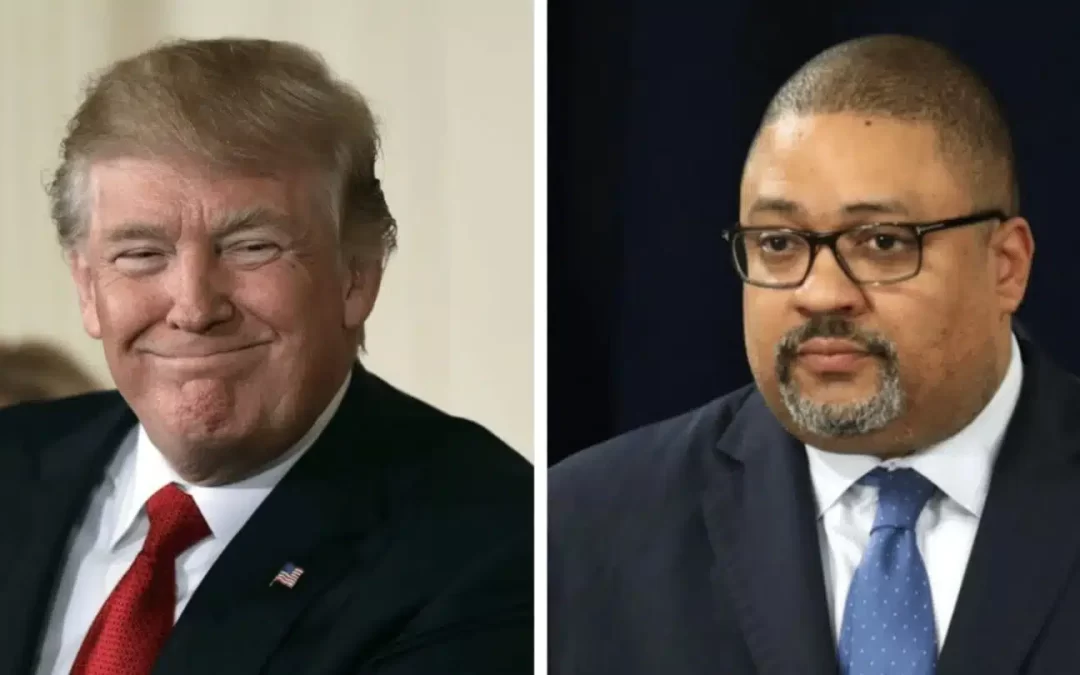An analysis examining how former President Donald Trump is likely to have his ‘hush money’ conviction overturned easily on appeal focuses on the judge, Juan Merchan, who presided over the case.
Hugh Hewitt, a conservative talk host and constitutional law professor at Chapman University School of Law, wrote in an op-ed for The Washington Post that Merchan’s participation in the case is the “number one” reason why he believes Trump’s conviction will
be overturned.
“New York Supreme Court Justice Juan Merchan, who presided over the hush money trial of former president Donald Trump that returned 34 felony convictions, ought never to have accepted the case. And Merchan surely should have stepped away once Trump’s lawyers moved that he disqualify himself,” Hewitt’s analysis began.
“Yes, in response to that request, an appeals court ruled last month that Trump ‘has not established that he has a clear right to recusal.’ But I expect that such clarity will emerge in the appeal of Trump’s conviction, which will be filed soon after his sentencing next month,” he added.
Many legal analysts who have assessed the case, identifying it as a disturbing deviation from the proper use of criminal law and the conduct of criminal trials, have each nominated their “most compelling” argument for Trump’s success on appeal. For Hewitt, the standout is Merchan’s astonishing decision to preside over the case in the first place.
It all began in July 2023 when New York State’s Commission on Judicial Conduct reprimanded
Merchan, issuing him a “caution.” The judge had made contributions to President Biden’s reelection campaign and to two anti-Republican and anti-Trump political action committees: Progressive Turnout Project and Stop Republicans, Hewitt noted.
New York law strictly prohibits its judges from making such political contributions. Although the rebuke to Merchan was not made public, he wrote that Reuters broke the story last month and predicted it would be a hot topic of discussion in the months leading up to
the election.
“Merchan donated $15 to the Biden campaign and $10 to each of the two committees. Why would anyone make such symbolic statements, having taken an oath to be a judge and abide by the judicial code of ethics?” Hewitt writes. “We cannot know, but it is plausible that Merchan needed to plant three flags to signal to Team Biden he would make a fine federal judge. Or perhaps he just loves Biden. Or perhaps Juan Merchan just detests Trump. We don’t know because the judge was never obliged to answer such questions.”
He noted further that Reuters reported: “Under [the New York] commission rules, a caution may be taken into consideration in the event of any future misconduct.”
Hewitt adds:
Last year, New York’s Advisory Committee on Judicial Ethics ruled that Merchan would not have to recuse himself after the Trump legal team raised not only the judge’s contributions to Democratic organizations but also his daughter’s work for Democrats and Merchan’s alleged suggestion to a former Trump Organization executive last year that he cooperate against Trump in the company’s tax fraud case.
But the judicial ethics advisory committee’s advice is not binding. Merchan was free to remove himself — and should have. If Merchan’s outright support for forces aligned against a defendant in his courtroom wasn’t disqualifying, then let’s hear no more of the (ludicrous) calls for Supreme Court Justice Samuel A. Alito Jr.’s recusal from Jan. 6-related cases because some people disapprove of his wife’s choice of flags to display.
The host and professor went on to list the New York statutes that guide behaviors by judges before declaring him a Democrat “partisan” who had every opportunity — and reason — not to preside over Trump’s case.









